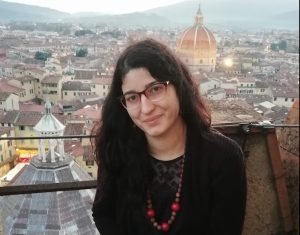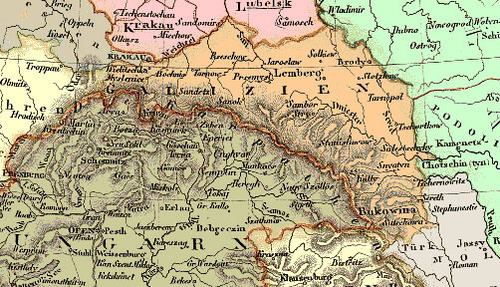The Concept of the "Civilizing Mission" as a Cultural Transfer in East-Central Europe, 1815-1919
Elżbieta Kwiecińska
European University Institute in FlorenceFebruary 26, 2020 / 4.00 pm
Library at the Center for Urban History
At the seminar Elzbieta Kwiecińska will show how the concept of the "civilizing mission" that has been generally associated with the Western colonialism, has been transferred, appropriated, contested and internalized by the Polish, Ukrainian and Jewish, both as an intellectual idea and as a tool for legitimizing political power.
Her main argument is that the appropriation of the concept of the ‘civilizing mission’ in East-Central Europe has a compensatory character challenge the division between ‘civilized’ West and ‘backward’ East and to prove one’s belonging to the West. In order to refrain from Eastern ‘European backwardness’ and identify themselves as ‘Western’, Polish, Ukrainian and Jewish intelligentsia constructed their own ‘Easts": in their Eastern neighbours (Poles in Ukraine, Poles and Ukrainians in Russia) or in the peoples of the same ethnic origin (Poles in the Polish peasants, Ukrainians in the Ukrainian peasants, assimilated Jews in the orthodox Jewry). She will demonstrate how the German ‘civilizing mission’ was transferred and reinterpreted into Polish ‘civilizing mission’ and Polish ‘civilizing mission’ into ‘Ukrainian civilizing mission’. Poland became ‘East’ for Germany the same as Ukraine did in relation to Poland and Russia for Ukraine and Poland. That is, they became both agents and subjects of the ‘civilizing mission’. In other words, in East-Central Europe there has been a chain of ‘civilizing missions’ which went across state boundaries from the West to the East.
During the presentation, Elzbieta will also show how the concept of the ‘Polish civilizing mission’ was used as a tool for legitimizing political power: after the Galician rebellion 1846, when Galicia gained autonomy in 1867 and when Polish delegation at the Paris Conference 1919 justified annexation of Galicia to Polish state. Elzbieta will also point out how the ‘Polish civilizing mission’ was contested by some Polish szlachta, who changed their national loyalty into Ukrainian: Volodymyr Antonovych, Vyacheslaw Lypynsky, Stanislav Stempowski and then, by the Ukrainian national movement: Mykhailo Hrushevsky and Ivan Franko.

Elżbieta Kwiecińska
is a PhD Researcher at the European University Institute in Florence. She received three Master degrees from the University of Warsaw, in history, sociology and law. She speaks several languages, including Ukrainian. Currently, she is finishing her PhD thesis on the concept of the ‘civilizing mission’ as a cultural transfer in East-Central Europe.
The event has a format of a workshop, with the guest researchers to discuss academic projects and research works on different stages of progress, and of the completed projects prepared for print.
Participation in the Urban Seminar implies reading and discussing the researcher’s text. If you wish to join the workshop, please, send an email to Nataliia Otrishchenko (n.otrishchenko@lvivcenter.org) to receive the materials in advance.
